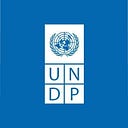Saving the truth — how to battle fake news
“Democracy dies in darkness,” proclaims the new slogan of The Washington Post. It is a timely reminder that free and balanced information, a public good, is under threat.
Around the world, facts are being manipulated and controlled, while the notion of truth itself is being disputed. In the age of technological supremacy and information saturation, we often retreat into digital echo chambers, where the information that suits us and our circle of friends recycles itself into an endless loop.
As a 2012 pre-election study in the United States has shown, over 90 percent of Twitter users disproportionately retweeted information by like-minded users.
The post-truth era is taking its toll. Globally, media remains the least trusted institution. In 16 out of 27 markets, the majority of respondents distrusted public information, according to the Edelman Trust Barometer.
In 2019, the gap in media trust between people who regularly consume news (around 16 percent of the global population) and those who don’t has reached a record high.
In many countries, fake news goes hand in hand with a shrinking space for public discussion, superficial coverage of current events, and increasingly polarizing rhetoric. Timothy Snyder, a World War II historian, warns that “to abandon facts is to abandon freedom. If nothing is true, then no one can criticize power, because there is no basis upon which to do so.”
Saving the integrity of our information is a cause worth fighting. It fosters more engaged, vigilant, accountable and forward-thinking societies. It is an essential ingredient in democratic governance, as access to accurate information leads to transparency, greater civil engagement, and better development results.
Is there a way to preserve truth and turn the tide of fake news?
A look at the root causes
It all begins with recognizing the trends currently at play. One is the dramatic rise in inequalities. According to Oxfam, more than 80 percent of the world’s wealth is controlled by one percent of the population. This and the perceived failure of both globalization and the welfare state have led to sharpening of political extremes and the rise of populist narratives.
At the same time, while the internet has amplified the reach and reduced the cost of accessing information, in most electoral democracies participation is declining. Over the past 25 years it dropped by 10 percent.
While trust in traditional media outlets has been systematically low, grassroots-level sources could revitalize the credibility of the industry. This entails empowering citizen journalism and grassroots initiatives that support robust reporting, source multiple viewpoints and build a constructive dialogue.
How to reverse the trend
1. Understand the local context.
Continuous monitoring can help expose falsehoods to the public. According to the findings of a UNDP 2016–2018 media monitoring study in Georgia, building better journalistic standards and ethical norms are among the most pressing challenges of the country’s media industry. This is consistent with the Edelman Trust Barometer’s finding that 60 percent of people believe media would rather support and ideology than accurately inform the public. Watchdog statistics serve as a reality check — they raise awareness about the actual state of affairs and act as a call to action in an increasingly urgent situation.
2. Build capacity in the press.
Reinforcing trust in media must include substantial efforts from within the industry. Biased and subjective coverage further reinforces socio-economic inequalities. In Ukraine, UNDP is involved in series of trainings for journalists and academia on how to cover sensitive topics. For instance, journalists learn how to cover news on minority groups like the Roma, where mainstream media often resorts to stereotyping.
3. Empower citizens to know their rights.
The decline of media standards and trust is a symptom of broader systemic issues. A 2018 New Media Literacy Survey found that restrictive media legislation in the Western Balkans was to blame for much of the disinformation. A robust civil society is able to safeguard the integrity of information without placing additional restrictions on content. In Moldova, UNDP rewarded the best reporters on corruption. In Kyrgyzstan, we are supporting data literacy through innovation labs. They raise awareness on open data and crowdsourcing — two innovative approaches on gathering and processing information.
4. Battle corruption.
Bottom-up checks on institutions foster greater accountability of power structures. Uzbekistan, with the help of UNDP has recently started live streaming hearings of the Supreme Court, while in Ukraine, a new portal has public officials declaring their assets publicly.
5. Build truthful information at key moments.
Accurate reporting and information is crucial during election periods, when political competition reaches its peak. As Moldova prepares for decisive parliamentary elections in February 2019, UNDP is helping to create an informational space for public discussion on the impact of elections. From hackathons to conferences on aggression in electoral campaigns, citizens are encouraged to reconsider elections through an innovative lens. For instance, young IT professionals came together to design an app, which allows citizens to track electoral outcomes in real time.
Fake news is often perceived as a trend beyond our control. It isn’t. The challenge is to build trust in public institutions, educate and facilitate dialogue, and above all, to create networks of multi-partisan citizens that ruthlessly fight for the right to access free, fair and balanced information.
